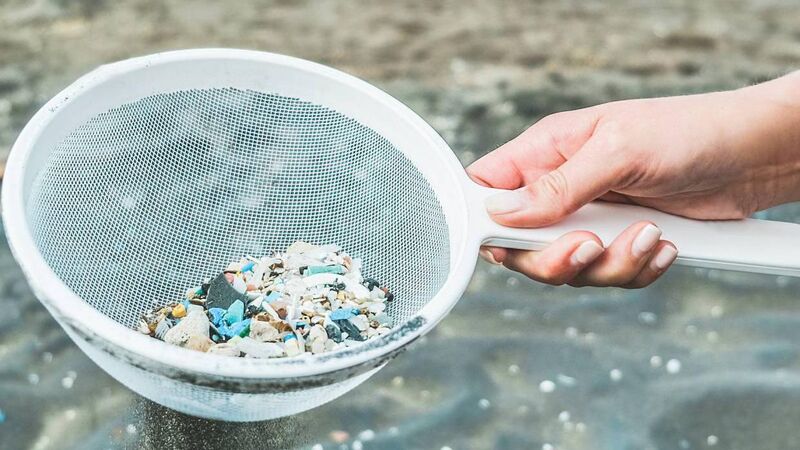Microplastics in breastmilk? This scourge has to be halted

Almost half of Ireland’s water in rivers, lakes and estuaries is polluted due, mainly, to agricultural run-off, according to a new EPA report - but the story of the presence of microplastics in breastmilk stopped me in my tracks.
Nowhere can escape the scourge of plastic. Tiny bits have been found at the furthest depths of our oceans, in human faeces, in lungs, in blood, and in the placentas that nourished babies in utero.
It is horrifying to think that there is nowhere to avoid the pervasive snow of microplastics and that one week old babies are already ingesting it.
Formula feeding doesn’t offer any solace, a study by Trinity College Dublin in 2020 showed average daily consumption by infants per capita was 1,580,000 particles from polypropylene bottles, a finding that shocked the researchers themselves.
The plastic industry produces more than 350 million tons of it every year. Beverage manufacturers alone produce more than 500 billion single-use plastic bottles every year. Only 9% of this plastic is recycled.
We are said to ingest almost a credit card size amount of plastic every week. Urgh.
Microplastics are fragments of any type of plastic less than 5mm in size. These particles result from the disposal or breakdown of plastic products, from washing polyester clothing, to industrial processes.
Researchers have warned about plastic in the oceans and in marine animals for almost 50 years, but the term microplastic was only coined in 2004. Originally, marine scientists wanted to understand the effects of plastic pollution on ocean ecosystems, but what started out as marine research has developed into wide-ranging research into the effects of microplastics on all aspects of the environment and health.
One area that scientists are particularly worried about is how microplastics bind to other pollutants in the environment, particularly ones called endocrine disruptors, which are chemicals that mimic our bodies’ natural hormones, and the potential long term effects of that.
Further research is needed for a more accurate assessment of the impacts on human health from exposure to microplastic, but it is a hugely complicated research question to unpick and it will be years before we have definitive answers.
Lack of scientific certainty is not a reason to delay in taking action to turn off the tap of plastic that floods our lives.
To me, it seems unlikely that a substance derived from the waste of the fossil fuel industry, which our bodies are not evolved to deal with, will have an entirely benign impact on our health.
To say I have no interest in football is an understatement. Giving 90 minutes of my life on a regular basis to watch overpaid haircuts tippy tapping on a patch of grass is not my idea of fun.
I do appreciate that lots of people derive great pleasure from watching the beautiful game, but I can’t reconcile the inflated salaries of professional footballers against jobs in society that are much more worthy of such extreme recompense.
If I happen upon a goal highlights package in a sports news bulletin, I’ll admire the skill involved, but I really don’t care if some middle England town I’ve never visited is going up or down some table.
After the excitement of Amber Barrett’s goal (as I said, I’m no expert but it looked like a stylish one to me) I spent the remainder of the match willing the final whistle to toot and I shed tears for the team when their dreams came true and they qualified.
I was emotional, not because they were going to a World Cup, but because their victory symbolises what women can achieve when you remove barriers, support them adequately, and let them do their thing.
In five short years, Irish female football players have gone from expending their energy pleading for respectful playing conditions and proper changing rooms, to making it to the final 32 teams in the world competing for the ultimate trophy in their sport.
Only a stone could fail to have been moved by their manager Vera Pauw’s post-match interview. It meant more than the usual trite patter of football managers. She is a survivor who has overcome sexual assault and has inspired this Irish team to believe in themselves and reach for the stars.
Oh, and yes, singing “ooh ah up the Ra” in the post-match excitement was poorly judged and a harsh lesson for these young women, who will have to deal with the extra scrutiny that comes with being national role models.
However, a few minutes of madness doesn’t take away from all that they achieved.







 App?
App?




